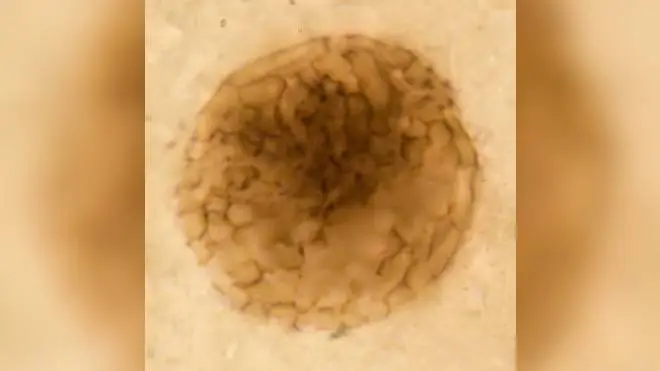
Ian Payne 4am - 7am
29 April 2021, 00:00 | Updated: 29 April 2021, 00:07

Scientists have discovered a billion-year-old fossil in the Scottish Highlands that could reveal a new link in the evolution of animals.
The microfossil was unearthed by a team of researchers, led by the University of Sheffield and the institution's Boston College, at Loch Torridon in north-west Scotland.
Their discovery, which contains two separate types of cells, could be the earliest multicellular animal ever found.
It has been formally named Bicellum Brasieri in a research paper published in Current Biology - a biweekly peer-reviewed scientific journal.
Professor Charles Wellman, one of the lead investigators from the university's department of animal and plant sciences, said the fossil was the first of its kind to be recorded.
"The origins of complex multicellularity and the origin of animals are considered two of the most important events in the history of life on Earth, our discovery sheds new light on both of these," he explained.
Read more: Woman discovers 'Jurassic giant' dinosaur footprint on Yorkshire coast
Read more: Fossil hunters urged to stay away after massive Jurassic Coast landslide
Read more: Four-year-old girl discovers dinosaur footprint on Welsh beach

"We have found a primitive spherical organism made up of an arrangement of two distinct cell types, the first step towards a complex multicellular structure, something which has never been described before in the fossil record.
"The discovery of this new fossil suggests to us that the evolution of multicellular animals had occurred at least one billion years ago and that early events prior to the evolution of animals may have occurred in freshwater like lakes rather than the ocean."
Bicellum Brasieri offers new insight into the transition of single-celled organisms to complex multicellular animals and its "exceptional preservation" allowed the team to analyse it at a cellular and subcellular level.
They are now seeking to examine deposits from Torridonian rocks for more interesting fossils that could shed more light into the evolution of multicellular organisms.
Professor Paul Strother, the lead investigator from Boston College, said: "Biologists have speculated that the origin of animals included the incorporation and repurposing of prior genes that had evolved earlier in unicellular organisms.
"What we see in Bicellum is an example of such a genetic system, involving cell-cell adhesion and cell differentiation that may have been incorporated into the animal genome half a billion years later."